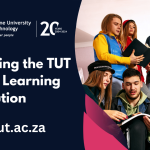Benefits of Asynchronous Learning for Busy Professionals. In today’s fast-paced world, achieving a balance between work, personal responsibilities, and further education can feel overwhelming.
For busy professionals, attending traditional, fixed-time classes is often unrealistic, making it challenging to continue learning and develop new skills.
Asynchronous learning, a core feature of many online learning programs, offers a flexible and accessible solution for those who are committed to career advancement but limited by time constraints.
Flexibility to Learn at Your Own Pace
A significant benefit of asynchronous learning is the flexibility it provides, allowing learners to move through material at a pace that suits them. Unlike synchronous learning, which requires attendance at set times, asynchronous learning enables professionals to access program materials, lectures, and assignments whenever it’s convenient.
This setup is especially advantageous for individuals with demanding and unpredictable schedules, as it removes the pressure of having to log in at specific times.
For example, consider a working parent with young children. Asynchronous learning allows them to engage with course materials after the kids are in bed, eliminating the need to rush through lessons or adhere to a rigid schedule.
This approach enhances the learning experience, as professionals can study during the times that work best for them, integrating education seamlessly into their daily lives.
24/7 Access to Learning Resources
One of the standout features of asynchronous programs is the 24/7 availability of resources. Whether you are a morning person or prefer studying late at night, you have round-the-clock access to lectures, discussions, and assignments.
This continuous access to materials ensures that learners don’t miss out on any part of the curriculum, as they can review the content multiple times for better comprehension.
This access is especially beneficial for complex or technical subjects that require careful study. For instance, if you’re enrolled in an advanced data analytics course, the ability to replay lectures and revisit practice exercises can enhance your understanding and retention of the material.
The convenience of revisiting materials allows for more thorough preparation and supports higher-quality learning outcomes.
Customized Study Schedule
Asynchronous learning allows professionals to create a study schedule that fits their unique lifestyles. This adaptability helps maintain a work-life balance by enabling professionals to plan their study time around their jobs, family commitments, and other personal responsibilities.
By reducing stress and preventing burnout, asynchronous learning fosters a healthier and more enjoyable approach to education. For example, if you’re a consultant with irregular hours, asynchronous learning lets you adjust your study times to avoid conflicts with work commitments.
This flexibility ensures that your job and education complement each other rather than competing for your time. The ability to study without compromising professional duties can be a game-changer, allowing professionals to advance their academic and career goals in harmony.
Ideal Platform for Continuous Professional Development
In today’s competitive job market, continuous professional development is essential for career growth. Asynchronous learning platforms offer a perfect avenue for professionals to pursue additional education without needing to take extended time off work.
The balance between work and study means that professionals can immediately apply new skills and knowledge in their roles, facilitating practical learning that enhances professional growth.
Imagine you are a project manager interested in improving your project management skills. An asynchronous course on new methodologies allows you to integrate learned techniques into your current projects, often resulting in better project outcomes and increasing your value within the organization.
By bridging theory and practice, asynchronous learning enables professionals to make a positive impact in real-time, building on their expertise and supporting career advancement.
Development of Self-Discipline and Time Management Skills
One of the lesser-known but crucial benefits of asynchronous learning is its impact on self-discipline and time management skills. Since you are responsible for setting your study schedule and completing assignments on time, this approach encourages the development of organizational skills and personal accountability.
Not only are these skills valuable for educational success, but they also transfer to the workplace, where they contribute to increased productivity and efficiency. By setting personal deadlines and adhering to a self-designed study plan, you cultivate a disciplined approach to time management.
This ability to prioritize tasks and manage your time effectively is highly regarded in any professional setting, often leading to improved performance and better organization. Developing these competencies can create a solid foundation for future success, both academically and professionally.
Enhanced Engagement and Interaction Opportunities
Contrary to the misconception that asynchronous learning is isolating, these courses often offer ample opportunities for engagement and interaction. Features such as online discussion forums, peer reviews, and group projects enable participants to connect with classmates and instructors.
These tools promote a sense of community, enabling professionals to share insights, offer feedback, and work collaboratively, which enriches the learning experience.
For example, if you’re enrolled in a course on marketing strategy, you may participate in a discussion forum where students and instructors share perspectives on recent industry trends.
This exchange of ideas provides diverse viewpoints that can enhance your understanding and deepen your insight into the subject matter. Far from being a solitary experience, asynchronous learning offers a vibrant learning environment that fosters professional relationships and broadens perspectives.
Accessibility and Inclusivity
Asynchronous learning is inherently more accessible and inclusive, accommodating different learning styles and paces. This setup ensures that all participants, regardless of their location or personal circumstances, have an equal opportunity to succeed.
For instance, professionals with disabilities, those in remote areas, or individuals facing other barriers to traditional education can access asynchronous programs without limitation.
Consider a learner with a visual impairment who relies on screen reader software. With asynchronous learning, they can take their time with the material and progress at their own pace, ensuring that their experience is as rich and comprehensive as any other student’s.
Similarly, a professional living in a rural area can engage in world-class education without the need to relocate, bringing greater opportunities within reach for diverse groups.
Fosters a High Degree of Knowledge Retention
Asynchronous learning encourages knowledge retention by allowing learners to review materials at their convenience.
By revisiting complex concepts or rewatching lectures, students can reinforce their understanding and improve long-term retention of the information.
This is especially useful for courses involving intricate theories or technical skills, as learners can go back to any part of the curriculum to clarify their doubts or reinforce essential concepts.
In a structured table format, here’s an example of the knowledge retention benefits of asynchronous learning:
| Feature | Benefit | Example |
|---|---|---|
| Flexible Repetition | Learners can revisit materials as needed | Replaying lectures on financial analysis to fully grasp concepts |
| Customized Schedule | Study at optimal times for memory | Reviewing materials at preferred hours, such as early morning, to maximize retention |
| Self-Paced Learning | Allows focus on difficult areas | Spending extra time on challenging modules like data visualization in analytics courses |
This ability to revisit resources contributes to better knowledge retention and a more personalized approach to learning, giving professionals the depth they need to excel in their fields.
Real-World Application of Skills and Knowledge
With asynchronous learning, professionals can apply their newly acquired knowledge and skills directly to their work, allowing for real-time learning that can have immediate, tangible effects.
This real-world application is invaluable for professionals looking to make a direct impact and demonstrate value within their organizations. It bridges the gap between theory and practice, enhancing both job performance and the learning experience.
For instance, if you’re enrolled in a management course, you might use newly learned leadership strategies to improve team dynamics and productivity. Such direct applications reinforce your understanding while also showcasing the relevance and practicality of asynchronous learning for career growth.
Start Your Educational Journey with TUT Today
Asynchronous learning offers a viable solution for busy professionals committed to enhancing their skills without sacrificing personal or professional responsibilities. Its flexibility, accessibility, and capacity for real-world application make it an attractive option for those aiming to advance in today’s dynamic job market.
By choosing asynchronous learning, professionals can take charge of their education, develop critical self-management skills, and unlock new opportunities for personal and career growth.
Conclusion
Asynchronous learning empowers busy professionals to advance their careers with flexibility and convenience. By accommodating diverse schedules and promoting self-paced learning, it offers an accessible, practical path for skill development, seamlessly integrating education into professional and personal lives.









